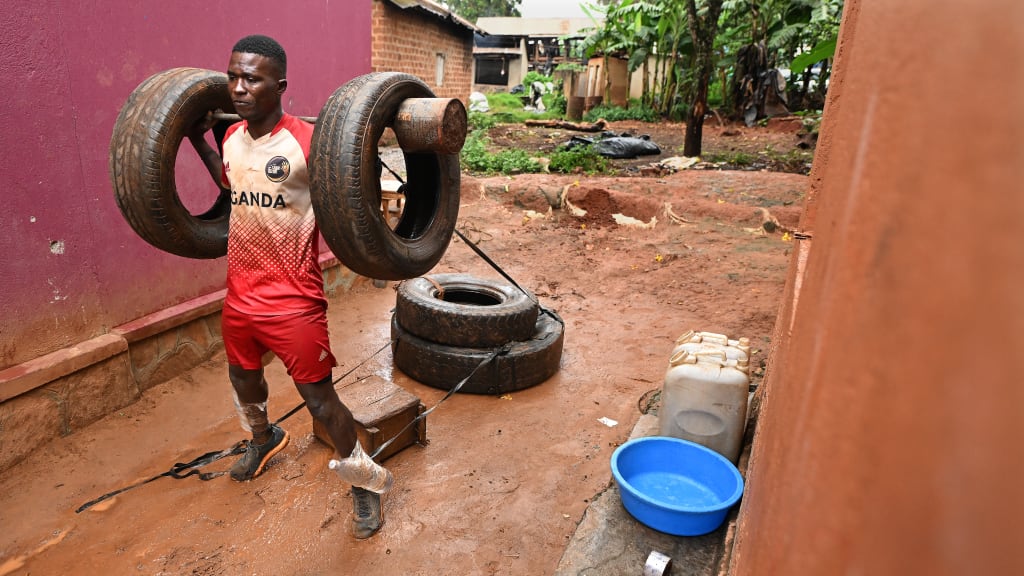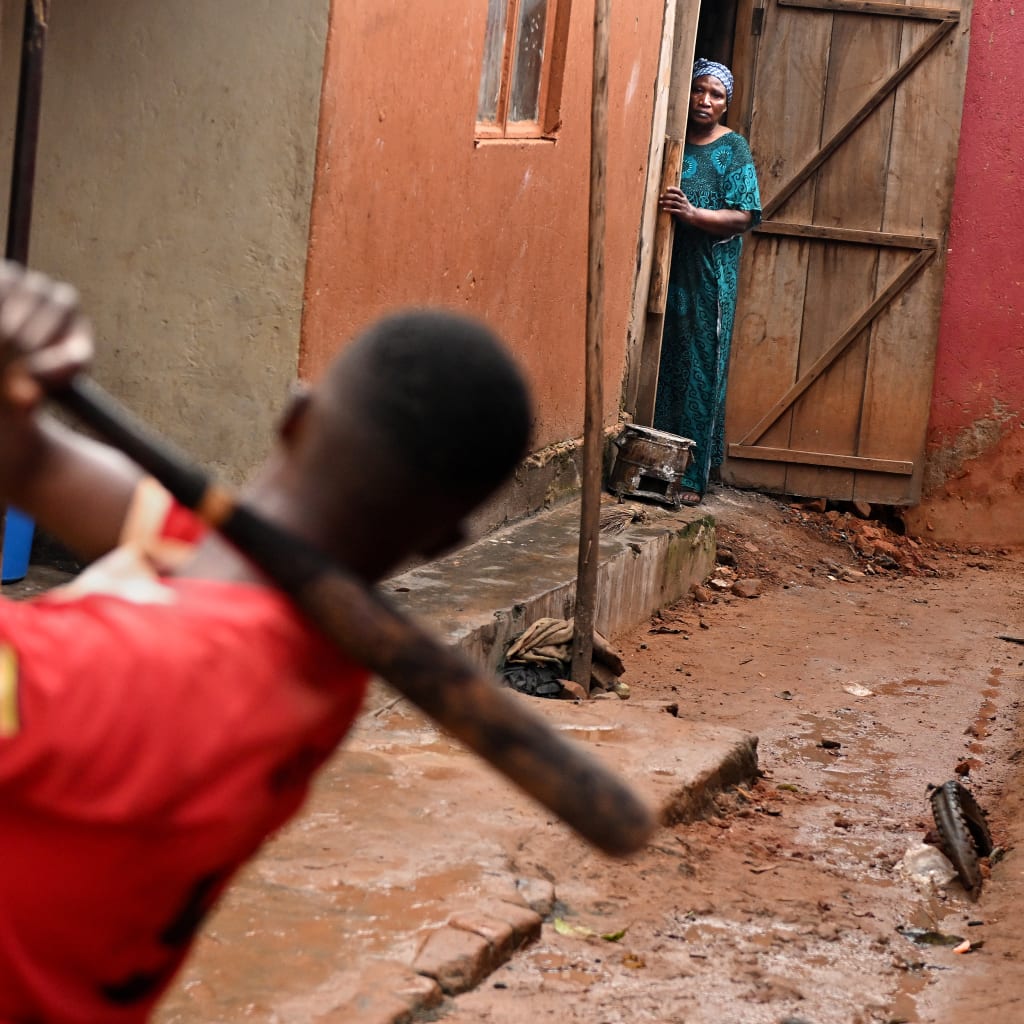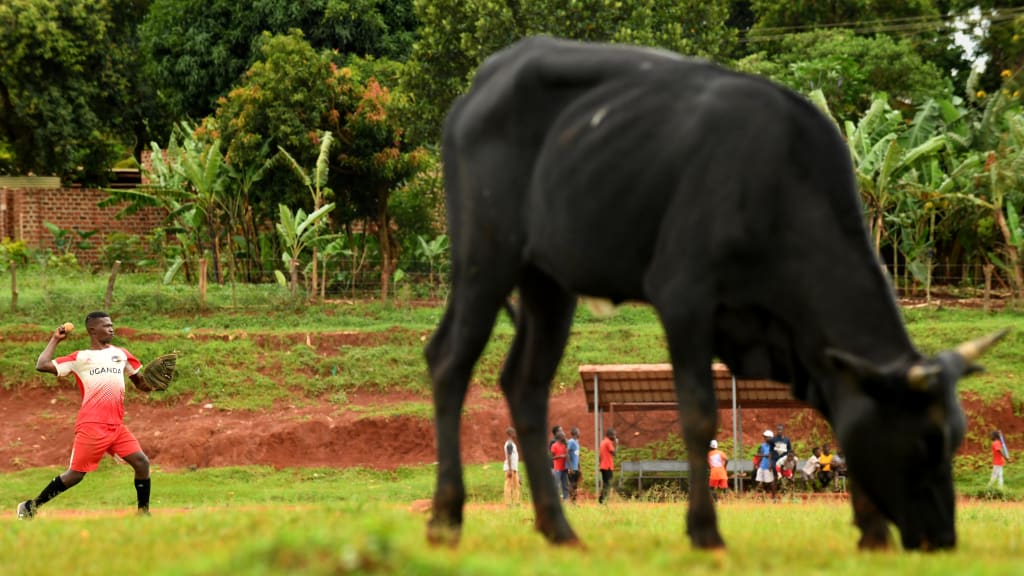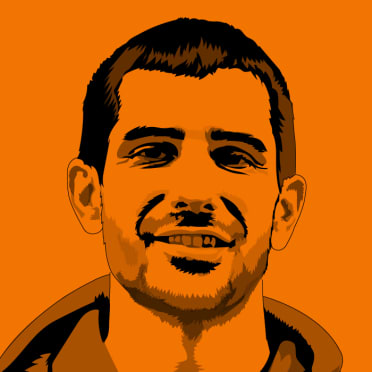
Four years ago, 14-year-old Dennis Kasumba was working at a Ugandan slaughterhouse just trying to make enough money to eat a meal.
On Thursday, the 18-year-old received a travel visa to be able to play baseball in this summer's MLB Draft League -- a six-team circuit that's made up of amateur players from college, junior college and high school who are hoping to develop their skills and open scouts' eyes before the July Draft. Players get housing and meals during the 30-game season.
"Being abandoned, being an orphan, living with his grandmother -- not great circumstances, right?" MLB Draft League president Sean Campbell told me in a phone call. "But the passion and energy for development. Striving for a goal. I just think there's a heartfelt story behind it."

Kasumba's tale -- detailed extensively by the L.A. Times -- is indeed an inspiring one.
His father went off to fight in the Ugandan Civil War and never returned.
His mother deserted Dennis when he was just two months old, leaving him and his two siblings on his grandmother's doorstep.
Growing up in extreme poverty, Kasumba went to work to try to provide for himself. He dropped out of school and killed cows, sheep and goats in a nearby slaughterhouse as a young teen -- hoping to not have to go to bed that night starving.
That's where coach Paul Wafula found him and asked him to join his local baseball team. Wafula, who similarly grew up poor in Uganda and found purpose in the sport, has a goal of helping others do the same. From there, Kasumba's life turned around.
The 5-foot-7 teenager worked out as a catcher for Wafula's team, which included many players who were also orphans, on a dusty ballfield. He joined the Ugandan national team. He worked out in the tiny space he had on the side of his grandmother's house -- going viral on social media for the conditions he trained through and the ordinary, household tools he used.
The videos caught the attention of coaches in the U.S. and, later on, Campbell -- who's always looking for unique players and any way to expand the game of baseball internationally.
"I loved the creativity," the former catching prospect said. "He's using the resources that are available to him."
The drive he saw in the videos, coupled with Kasumba's heart-wrenching backstory and his talent -- as confirmed by the Ugandan Baseball Federation -- convinced Campbell to recruit the 18-year-old to play in the Draft League.
But getting a visa was difficult for Kasumba -- who, with his parents gone, couldn't prove he had close family ties he could return to after his time in America. Finally, after three tries and efforts by the Ugandan government and NGOs, Kasumba got his visa. He'll play for Maryland's Frederick Keys starting in June, a team managed by former catcher René Rivera. That placement was on purpose for the aspiring backstop.
"René is going to be a tremendous asset to this kid," Campbell said. "Some of the drills he'll be able to take home won't need additional resources. The exposure he'll be able to get from this guy who did it for 12, 13 years at the highest level. Obviously, he's also gonna have access to advanced facilities, weight rooms and different things like that."

Campbell, and the rest of Kasumba's Twitter fans who have been following him for years, are undoubtedly pleased with the next phase of his baseball life. He'll learn new skills, utilize technology, meet players and scouts and coaches in a place he never dreamed of reaching.
Baseball has given him newfound hope. A future.
And Campbell, who was actually the signing scout for the two Indian cricket players portrayed in the movie "Million Dollar Arm," hopes this moment can accelerate a growing wave of interest in baseball in Uganda, as it did in India.
"Great for Dennis, he's gonna have the experience of a lifetime," Campbell told me. "Hopefully it leads to other baseball opportunities down the road in his home country or in the U.S. collegiately or professionally. But it's really about those 12- and 13-year-olds who are playing baseball in Uganda right now and seeing that there is light at the end of the tunnel. They could, if they ultimately get to the same level, take that next step."
